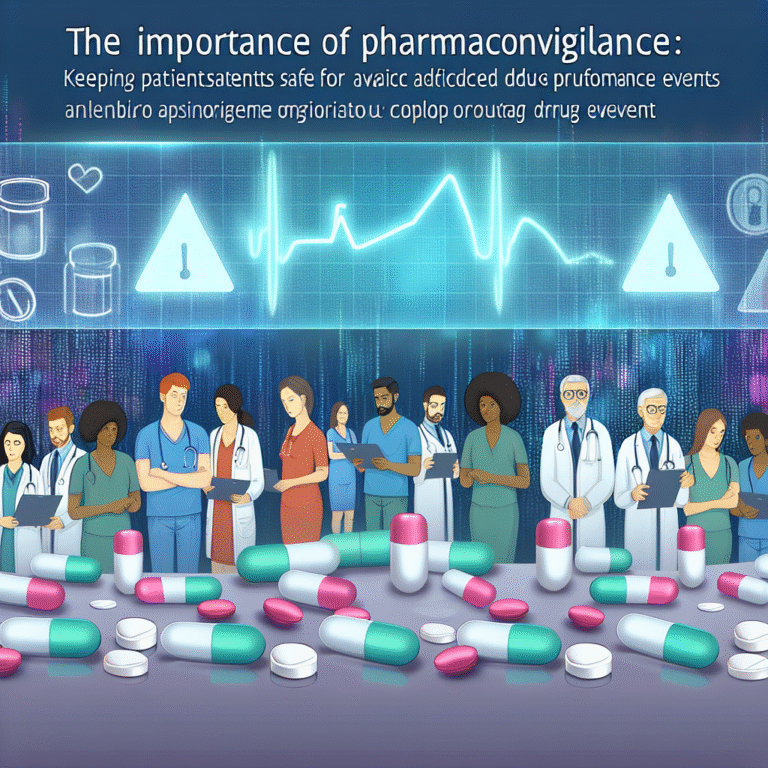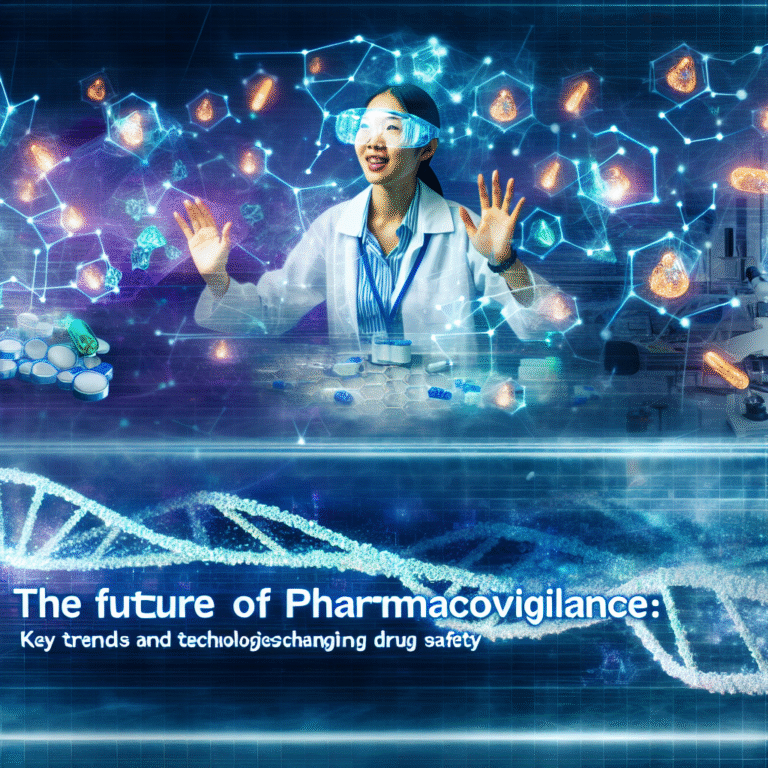Becoming a Pharmacovigilance Specialist: A Step-by-Step Guide for Aspiring Healthcare Experts
Becoming a Pharmacovigilance Specialist: A Simple Guide for Aspiring Healthcare Experts
Introduction
Healthcare is always changing, and now more than ever, making sure medicines are safe and work well has become really important. Pharmacies and doctors everywhere are working hard to ensure that every medicine given out helps more than it harms. This important job is at the center of pharmacovigilance, which is all about keeping an eye on medicines after they’re being used by people. This is where pharmacovigilance specialists come in.
Are you thinking about becoming a pharmacovigilance specialist? Get ready for an exciting adventure in this fascinating field. Whether you’re still in school, you just graduated, or you’re thinking about a career switch, this guide from Pharmacovigilance Foundations will give you helpful tips to understand and succeed in this crucial healthcare role.
Understanding Pharmacovigilance
What is Pharmacovigilance?
Pharmacovigilance is about spotting, checking, understanding, and stopping bad effects or any other problems with medicines. It’s super important because it helps keep people safe by tracking and checking any bad effects of medicines.
What Does a Pharmacovigilance Specialist Do?
1. Find, check, and reduce risks related to medicines.
2. Report bad drug reactions and medicine mistakes to proper authorities like the FDA.
3. Work with healthcare professionals and regulators to make sure medicines are safe.
What Education Do You Need?
What Should You Study?
To start in this career, having a good educational background is key. Usually, degrees in pharmacy, medicine, life sciences, or similar fields are a great start for people who want to become pharmacovigilance specialists.
Some popular degrees include:
1. Bachelor of Pharmacy (B.Pharm)
2. Doctor of Pharmacy (Pharm.D)
3. Bachelor’s or Master’s in Life Sciences
4. Medical degrees like MBBS or the same
Courses and Certifications to Consider
While a strong academic foundation is important, extra courses can really boost your skills and chances of getting a job:
1. Pharmacovigilance and drug safety courses from known places.
2. Drug Safety Certification from the Drug Information Association (DIA).
3. Advanced studies in pharmacology, toxicology, or biotechnology.
Skills and Abilities
What Skills Do You Need?
To be a good pharmacovigilance specialist, you need certain skills:
1. Be good at thinking carefully and paying attention to details.
2. Have strong communication and people skills.
3. Be good at using data analysis tools to report and evaluate adverse drug reactions.
4. Know a lot about regulatory requirements and guidelines.
Skills to Build
1. Be able to work alone and in a team.
2. Be good at making decisions and solving problems.
3. Always keep learning and stay updated with industry changes and new technologies.
Getting Real-Life Experience
Internships and Starting Positions
Practical experience is super important in pharmacovigilance. Starting jobs and internships give you the hands-on practice you need to do well:
1. Look for openings in pharmaceutical companies or regulatory agencies.
2. Try internships or co-op programs to gain first-hand experience.
3. Volunteer for research projects focused on drug safety.
Making Connections
1. Join professional groups in pharmacovigilance and go to industry meetings.
2. Connect with experienced professionals on LinkedIn and other social media.
3. Take part in online seminars and workshops to meet others.
Career Path and Growth
How Does a Career in Pharmacovigilance Develop?
Careers in pharmacovigilance can begin in many different starting roles and grow into bigger positions:
1. Pharmacovigilance Assistant
2. Drug Safety Associate
3. Pharmacovigilance Specialist
4. Senior Pharmacovigilance Officer or Manager
5. Jobs in clinical trials and regulatory affairs
How to Grow in Your Career
1. Get more education or advanced degrees in specialized areas.
2. Get extra certifications in specific areas of pharmacovigilance.
3. Take on leadership or project management roles to expand your expertise.
Challenges and Opportunities
Challenges in Pharmacovigilance
Working in pharmacovigilance has its challenges:
1. Handling different rules in different countries.
2. Managing and analyzing lots of data and reports.
3. Keeping up with fast changes in pharmaceutical technology.
New Opportunities
Even with challenges, there are great chances for growth and learning:
1. The growth of personalized medicine and biologics offers new challenges and learning experiences.
2. More use of AI and machine learning to improve drug safety.
3. Expanding roles in developing markets offering new opportunities.
Conclusion
Becoming a pharmacovigilance specialist is a rewarding and impactful career choice for anyone passionate about healthcare and public safety. With the right education, skills, and dedication, you can significantly contribute to this vital field, ensuring medications remain safe and beneficial for all. We encourage you to embark on this career path and make a difference in the world of healthcare.
Extra Resources
To learn more about pharmacovigilance, check out the following:
Books and Journals
1. “Pharmacovigilance: A Practical Approach” by Elizabeth B. Andrews and Nicholas Moore
2. “Meyler’s Side Effects of Drugs: The International Encyclopedia of Adverse Drug Reactions and Interactions”
3. Journals: “Drug Safety,” “Pharmacovigilance Review,” and “Adverse Drug Reactions Journal”
Online Courses and Certifications
1. Online courses at Coursera, Udemy, or LinkedIn Learning.
2. Certification programs from DIA and other professional organizations.
Whether you’re a student figuring out your career path or someone looking for a change, pharmacovigilance offers a bright future filled with opportunities to help global health. Start this journey and make a big difference in the world of medicine.






